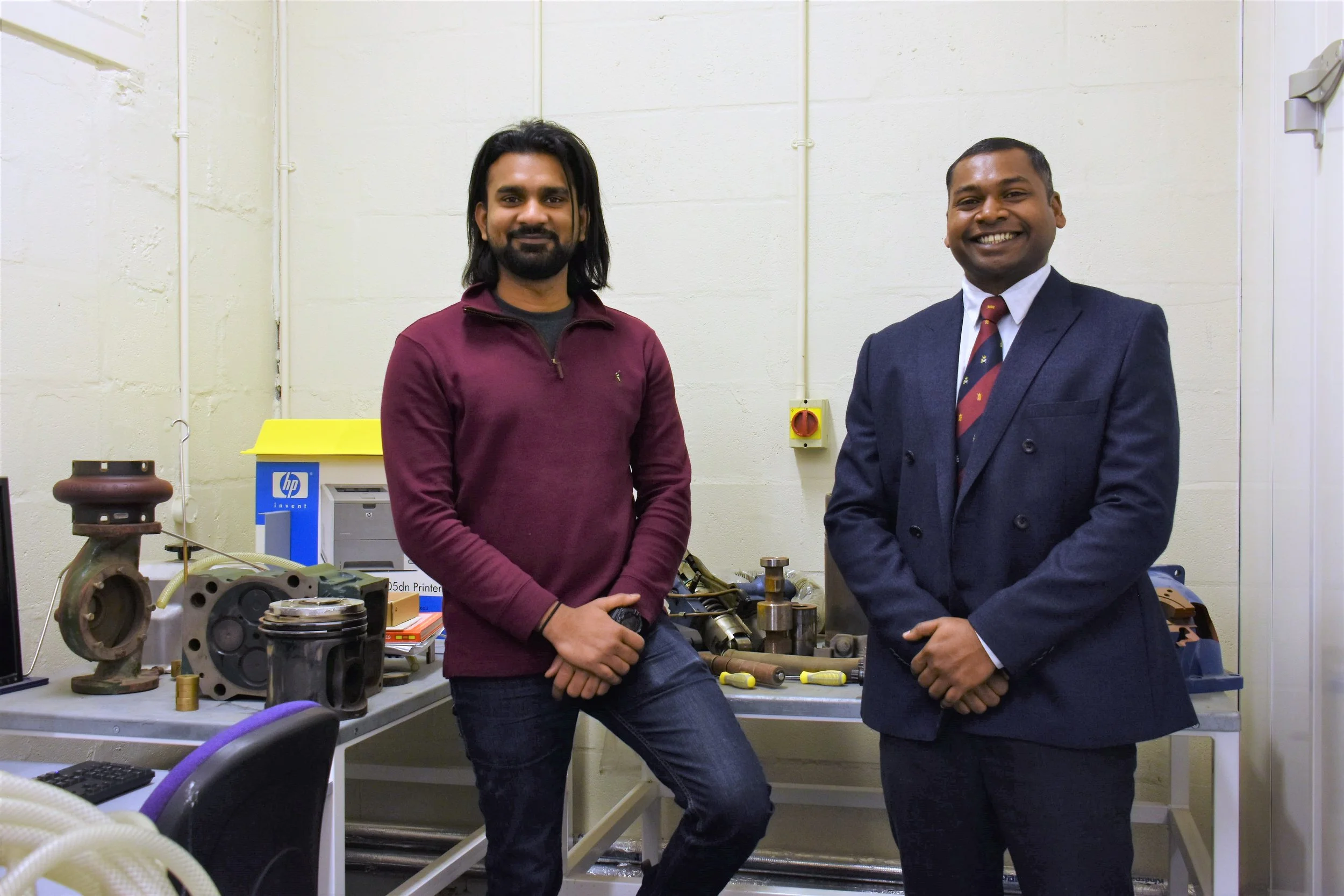A partnership built for success
Katrick Technologies have been making an impact in the cleantech sphere, and its impressive growth shows no signs of slowing down. Here, Vijay Madlani, co-CEO of Katrick Technologies, discusses the value for the business of a partnership with an academic institution.
We develop unique solutions to some of the most important climate challenges, and our two lead products present exciting possibilities to support the journey to net zero. Alongside its creative ideas and team of skilled engineers and entrepreneurs, a long-standing collaboration with the University of Strathclyde in Glasgow has been instrumental in Katrick Technologies’ success.
The seed of the idea behind Katrick Technologies was planted at Strathclyde, Glasgow, where founder and co-CEO Karthik Velayutham completed an MSc in Sustainable Engineering: Offshore Renewable Energy and a BEng in Naval Architecture and Small Craft Engineering.
Velayutham developed a new idea for a novel wave energy device and began to explore the concept of vibrational technology. This model would become the core of Katrick Technologies’ product offerings.
Velayutham also completed a business course at the University’s Business School to support the evolution of our business from an idea to a fully realised business, which further strengthened the partnership between the company and Strathclyde.
Katrick was supported through Strathclyde Inspire, the university’s entrepreneurship programme, and was based in the University Incubator before moving into its office within the Glasgow City Innovation District in early 2021. Our business has since gone from strength to strength, with most of our senior executive team joining in 2021.
Co-Founders Karthikeyan Velayutham and Farshad Allauddin at the first Katrick Technologies office located at the University of Strathclyde.
Strathclyde has continuously engaged with Katrick, providing support with research and development (R&D) and advancing the technology readiness level (TRL) of its products. The collaboration works so well thanks to this effective communication between us and the University. Regular meetings help to identify current challenges and opportunities for collaboration; these are then referred to the University for project scoping and to determine which funding routes and what support are available internally.
The partnership highlights the benefits of collaboration between academia and industry in a research context. The University can assist with ongoing R&D, utilising its strong engineering department and wealth of expertise within the staff and student body.
Strathclyde is also keen to be involved in the innovation of net-zero technology and in bringing new products to market, and the partnership fosters a collaborative relationship for doing so. The University also provides the TRL verification for our products — its cross-disciplinary Energy Systems Research Unit has worked with us since 2021, including on our wind-mapping project with Glasgow airport.
The work on this project has helped to benchmark the TRL of our products and ensure that the technology is in a suitable place to advance. The strong relationship between Katrick and Strathclyde has seen several notable successes; the University has supported the rapid acceleration of Katrick over the past six years by providing the expertise to build on the company’s inspiration. Without this partnership, our company wouldn’t be where it is today in terms of innovation and technology.
This partnership is mutually beneficial – while Katrick Technologies can make use of the expertise at the university, it also supports educational initiatives to give students the opportunity to be involved in exciting new projects, gaining valuable experience from industry.
A Centre for Doctoral Training (CDT) at the University, funded by the Engineering and Physical Sciences Research Council (EPSRC), has been established to recruit 70 students over four years to train to EngD and PhD level in wind and marine energy. Katrick co-funds two EngD studentships in collaboration with the CDT, offering a comprehensive training programme and accredited Institute of Engineering and Technology (IET) and Institute of Mechanical Engineers (IMechE) schemes, with the potential opportunity for obtaining Chartered Engineer status.
Students have also had the opportunity to work on projects with Katrick Technologies through the Design, Manufacturing & Engineering Management (DMEM) department. The work carried out on these projects has directly contributed to product development, allowing the students to not only experience R&D in an industrial setting, but to see their ideas become reality in some truly ground-breaking innovations.
Examples of DMEM projects include the design of our novel wind power generation system and the heat fins for its world-first passive cooling system for data centres. We have even welcomed a host of graduates and alumni into its team permanently to continue their research.
The engagement with the University of Strathclyde will continue, with several ongoing projects which will provide future PhD programmes, including its wind mapping projects with more major airports.
Katrick is also keen to support student experience of working in industry, particularly within the renewable energy sector. As we progress, we are able to offer more exciting opportunities for early career engineers and researchers to gain valuable insight into industry and to contribute to real innovations that can make a difference. The partnership so far has been key to Katrick Technologies’ success, and with more developments on the horizon, it looks set to continue to grow.


